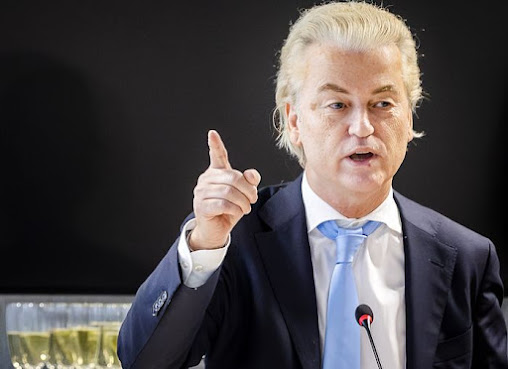The proposed flag of an English Republic by William James Linton.
This weekend the eyes of the world are
on London for the Coronation of King Charles III. The Coronation has shown that
Britain as a nation excels at delivering pomp and ceremony. This is despite the
fact that the ancient tradition of coronating a King, steeped in feudal
symbolism and the Protestant religion, looks increasingly out of place in a
modern, secular and multicultural liberal democracy. It is also an important
moment to reflect upon the republican political tradition, as dozens of republican
protesters have been arrested
for protesting against the Coronation and for exercising their democratic
rights and freedoms.
What is most
striking at first glance is the great poverty of republicanism in today’s Britain.
By this, I do not mean that only 27%
in a survey last year would support Britain becoming a republic. I mean
that real republicanism has largely been forgotten. Today, republicanism is
seen by most, including by most republicans, as simply meaning support for an
elected head of state. This is a great philosophical injustice. This is republicanism
at its most banal, its most vapid and its most politically vacuous.
Republicanism
as a political theory is not solely, or even mostly, about having an elected
head of state. In fact, throughout history many republics have not had direct
elections for the head of state. A contemporary example of this is that of
Germany. In Germany, the President is elected by a national Federal Convention.
The Convention is comprised of elected members of the German Parliament, the
Bundestag, as well as elected delegates from each of the German states. Even
the American President is, strictly speaking, not directly elected. Voters in
America do not vote directly to elect the President, they vote to elect
delegates to the Electoral College. It is the Electoral College that elects the
President, not the American people directly.
For most republics
throughout history, having an elected head of state has merely just been the
cherry on top of the republican cake. Republicanism is about much more than the
political nature of the head of state, it is about the political nature of the
structure of government, its elected representatives and the citizens who vote
for them. It is about the values, the principles, the attitudes and the
political culture that informs a political society as a whole. Real republicanism
is not just about a head of state, it is about the whole nature of government,
citizenship and political society.
Republicanism
as a political theory centres upon building a political society that values
citizenship, virtue, democratic participation and the common good. These principles
inform all the political actors (citizens, voters, activists and politicians)
and all the political institutions (councils, devolved assemblies, the national
parliament and the head of state) of a society. It should recognise the common
citizenship of all within society, as well as believing that all citizens have
a right to democratically participate in the running of the society, and that
in all things, the common good must be advanced. Activists and politicians must
be driven by a sense of virtue and responsibility to the people. They must recognise
what is in the common good of society and always defend the principles of
democratic participation for all, while respecting their political opponents and
treating them with virtue.
Liberty is
also of great importance to republicans. In his 1997 work Republicanism: A
Theory of Freedom and Government, the Irish political philosopher Philip Pettit
revived the concept of republican liberty. This being liberty as non-domination.
The freedom of citizens to be free of the arbitrary interference of another to
make certain decisions on their behalf. In other words, the liberty that comes
from not being deprived of the agency and autonomy to make important decisions,
that you are able to make for yourself, without your prior consent.
Pettit
contrasts republican freedom with negative liberty, the freedom from physical restraint
and coercion. However, I would argue that republican liberty is the truest
expression of classical liberal negative liberty. You cannot have true freedom
from coercion, unless you have liberty in the absence of domination. Not to
mention, that there are aspects of republican liberty that can be identified in
the works of great liberals, such as John Locke, Thomas Paine and John Stuart
Mill.
Today, excellent
examples of republican political societies can be seen in modern republics,
such as Ireland, Germany, Portugal, Finland, Iceland and Taiwan. However, I
would argue that Norway, Sweden and Denmark are more republican in terms of their
political societies than the modern United States. This may seem like a
controversial statement considering that Norway, Sweden and Denmark are
constitutional monarchies and not republics. These Scandinavian countries with strong
political traditions centred around community and social democracy are far more
in keeping with the values and principles of a republican political society
than the US. Especially those parts of modern America that are gripped by
divisive right-wing politics, conspiracy theories, the rejection of democratic
principles and the post-truth fascistic politics of Donald Trump. The modern US
Republican Party is far removed from advocating for real republicanism. It
truly is “Republican” in name only.
The first
step towards Britain becoming a Republic is to build a republican political
society. Individual republicans can start to do this right now by embodying the
republican principles of public service, virtue, mutual citizenship and the
common good in all of their actions. Republics are built by citizens, not just
by political institutions and national titles. Regardless of Britain’s
constitutional monarchy, there is nothing to stop republican principles from
being advanced throughout British society and British politics. We can start to
lay the foundations for a future British Republic by embodying republican
principles in our personal political conduct. In time, if practiced widely
enough, this would foster a political society that centres around a richly republican
political culture of citizenship, virtue, democratic participation, republican
freedom and the common good.
It would
help in the development of a popular republican imaginary, if republicans in
Britain today had a symbol behind which they could rally behind. Republican
movements throughout the ages have used flags to symbolise the republican
rebirth of their nations. The best example of this is the blue–white-red vertical
striped French tricolour that originated in the first French Revolution of
1789. In The English Republic, published in 1851, William James Linton
proposed a blue–white–green horizontal striped tricolour (see above) to be the
flag of his English Republic. British republicans previously used a red-white-green
horizontal tricolour from the early 19th century until the early 20th
century. However, this flag is identical to the modern flag of Hungary. Therefore,
it is imperative that British republicans create a modern flag to represent the
republican movement and the republican political society and government they hope
to build.
This
Coronation weekend, we must remember that republicanism is a deep and rich
political philosophy that amounts to far more than just the nature of a country’s
head of state. To build a Republic without republicanism is a fruitless task. If
Britain was today to start having an elected head of state, without the
formation of a republican political society, it would be a “Republic” in name
only. Let us begin to build a liberal democratic Commonwealth by fostering a
new republican form of politics in our society. The time has come for British republicans
to rediscover real republicanism.






No comments:
Post a Comment